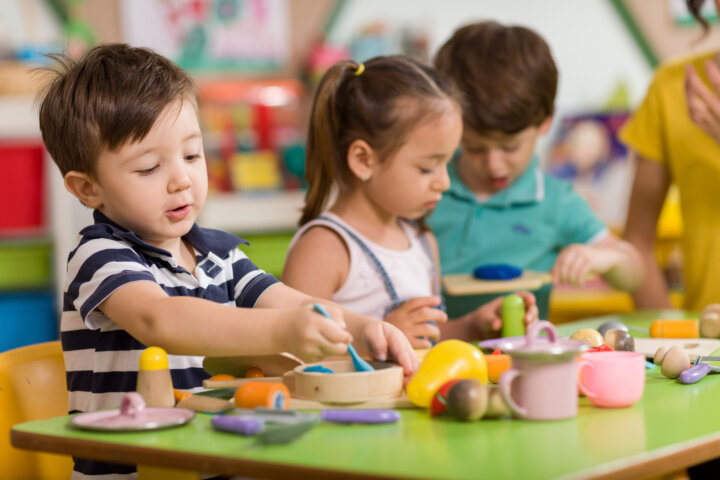Undersökningar av sociovetenskapliga samtal i naturvetenskaplig utbildning
Barbro Gustafsson
Professor Lena Fritzén, Professor Per Gerrevall
Docent Anders Jakobsson
Linnéuniversitetet
2010-12-10
Undersökningar av sociovetenskapliga samtal i naturvetenskaplig utbildning
Institutionen för pedagogik, psykologi och idrottsvetenskap, PPI
Undersökningar av sociovetenskapliga samtal i naturvetenskaplig utbildning
Skolans och lärarens uppdrag är att se till att elever utvecklar ämneskunskaper såväl som demokratiska förmågor, men resultat som presenteras i denna avhandling antyder att demokratiuppdraget ges sekundär prioritet i skolans naturvetenskapliga utbildning. Ett sätt att arbeta med såväl kunskaps- som demokratiuppdraget är att ge elever möjlighet att samtala i grupp kring samhällsfrågor med naturvetenskapligt innehåll. Sådana sociovetenskapliga frågeställningar (SSI) kan exempelvis handla om genförändrade livsmedel, kärnkraft, kraftledningsdragningar, fosterdiagnostik eller förhöjd växthuseffekt till följd av vår livsstilsrelaterade användning av fossilt bränsle. Dessa komplexa frågor lämnar utrymme för såväl naturvetenskapliga argument som personliga värderingar och samhällsnormer. De erbjuder dessutom möjligheter att utveckla egen argumentation och ta hänsyn till andras. Eftersom naturvetenskap, individ och samhälle förenas i frågeställningarna så skulle de också kunna bidra till att göra naturvetenskapliga studier mer relevanta och intressanta. I avhandlingen undersöks möjligheter och begränsningar hos sociovetenskapliga samtal mellan elever, där samtalens innehåll och form ges demokratisk betydelse.
Abstract in English
The thesis examines the potential of students group discussions in science education in the context of a communicative perspective on democracy and meaning-making. The group discussions in focus are about socioscientific issues (SSI), i.e. controversial and complex issues with scientific as well as sociological aspects. The philosophical works of John Dewey and Jürgen Habermas serve as the main theoretical underpinnings. Different types of empirical data were used for the qualitative analyses: policy documents, student teachers essays, student interviews and recorded group discussions between classmates.Attention is drawn to the twofold educational mission to ensure students subject knowledge and democratic growth, where the democracy aspect of this mission is in danger of being given secondary priority in science education. Deliberations about SSI are suggested as a possible way of bridging the gap between the two tasks. An ideal deliberation is characterised by democratic virtues such as sincerity, consideration, a critical review of what is otherwise taken for granted and an aspiration to seek agreement. SSIs facilitate theoretical, ethical and moral reflection and examine argumentation skills in a reflective and considerate way in order to lead to participation and the creation of meaning in mutual communication.Both the possibilities and shortcomings of deliberative-oriented group conversations were highlighted in the interviews with upper secondary school students involved in the socioscientific tasks. This then provided guidance for an extended study of SSI-deliberations among students, also from upper secondary school. An analysis tool, DEQUAL, was constructed in order to be in a position to assess their democratic and deliberative qualities.The overall results showed that students could maintain respectful and engaged conversations in which they jointly created and developed arguments. However, expressions of meaning-making in terms of insights and new-found experiences were scarce. Furthermore, the students seemed too eager to agree. Although the guidelines emphasised the importance of advancing various arguments, other students statements were rarely challenged. If SSI-conversations are to approach democratic and deliberative ideals and stimulate meaning-making, the participants must be prepared to exchange contrasting views. According to Habermas theory, when deliberating one relates to a subjective world of experiences, a social world of common agreements and an objective world of facts. Since both science and SSI contribute objective, factual dimensions, it is suggested that the deliberative idea might have a particular bearing on science education, since the conversations do not just revolve around personal opinions.It was concluded that the development of deliberative conversation skills requires careful, guided practice. It also became clear that the deliberative guidelines for seeking agreement and the teacher s non-participation in the talks needed to be reviewed.
Relaterade länkar

Svenska som andraspråk
 Åk F–Vux
Åk F–Vux
När leken inte fungerar
 Fsk
Fsk


